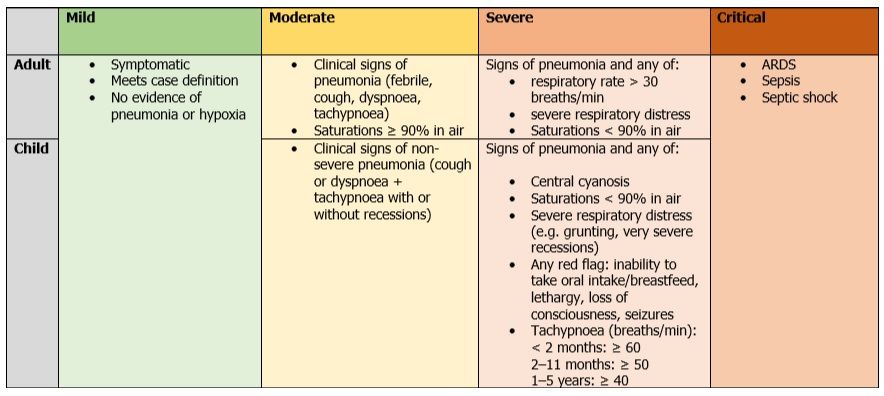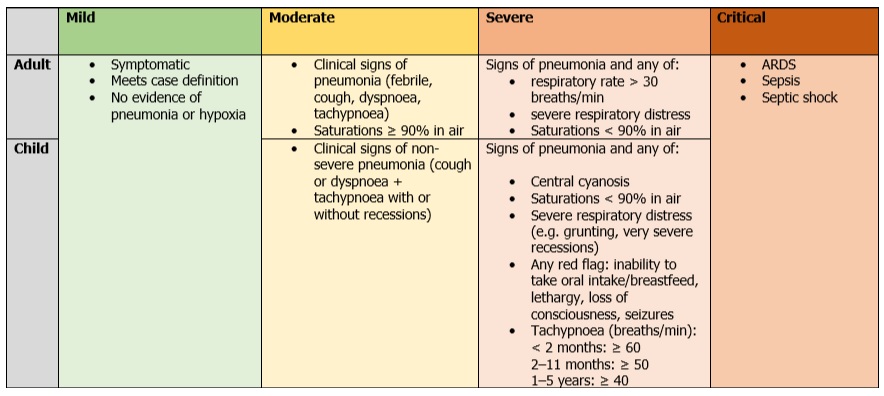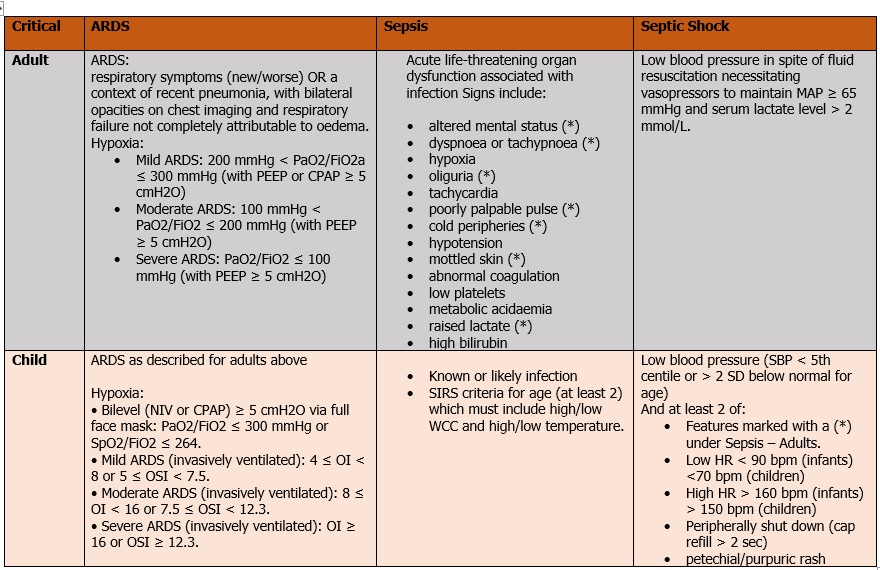Escalating care in COVID-19

Complications of coronavirus
Healthcare professionals should have a high suspicion for signs and symptoms which may suggest any of the following complications known to occur in COVID-19. Care should be escalated based on local guidance in any patients suspected to be suffering from these complications:
Pneumonia
ARDS
Sepsis
Septic shock
Acute pulmonary embolism
Acute coronary syndrome
Acute stroke
Delirium
High-risk COVID-19 patients
There are several known risk factors for severe disease, which are outlined below, and should be taken account of when considering which patients are more likely to deteriorate from Coronavirus:
1. >60 years old (and increasing with age)
2. Underlying noncommunicable disease:
Diabetes
Immunosuppression
Hypertension
Cardiac disease
Cancer
Chronic lung disease
Cerebrovascular disease
Chronic kidney disease
3. Smoking
Classifying COVID-19 severity
Knowing when to escalate care requires knowing which factors should raise concern. According to WHO guidance (which has been adapted in summary below), patients can be classified as having mild, moderate, severe and critical COVID-19 as per the following criteria:

Critical COVID-19 patients
Those presenting with ARDS, sepsis or septic shock will be categorised as 'critical'. The WHO guidance is summarised below:

Reference
World Health Organisation. Clinical management of COVID-19, Interim Guidance. May 2020. [Online] Available from: https://www.who.int/publications/i/item/clinical-management-of-covid-19 [Accessed 8th June 2020]
Loading Author...
Sign in or Register to comment